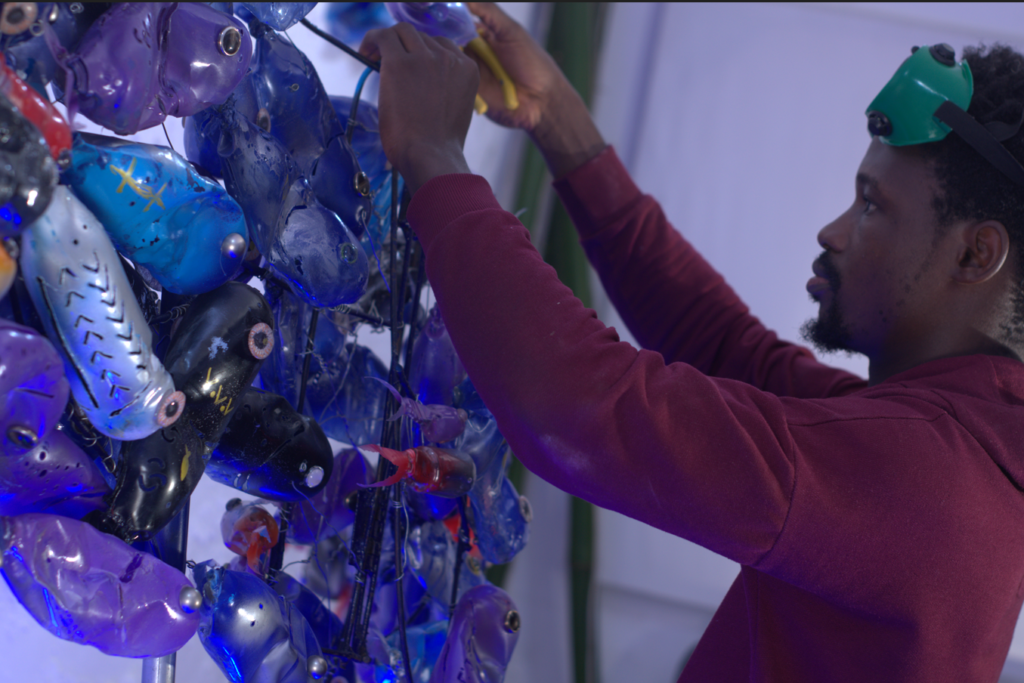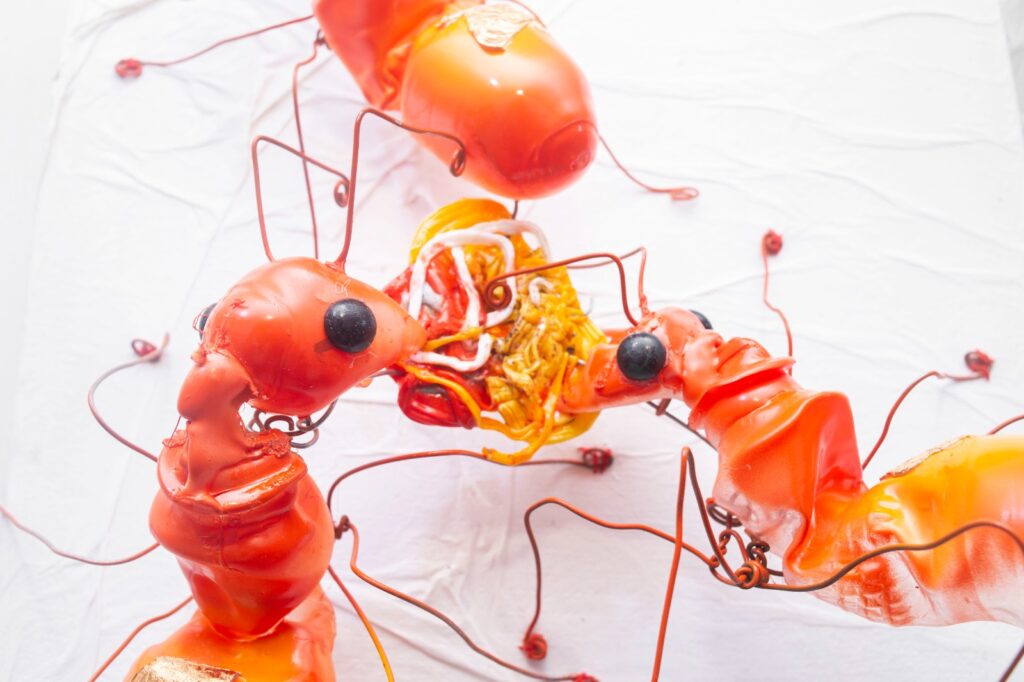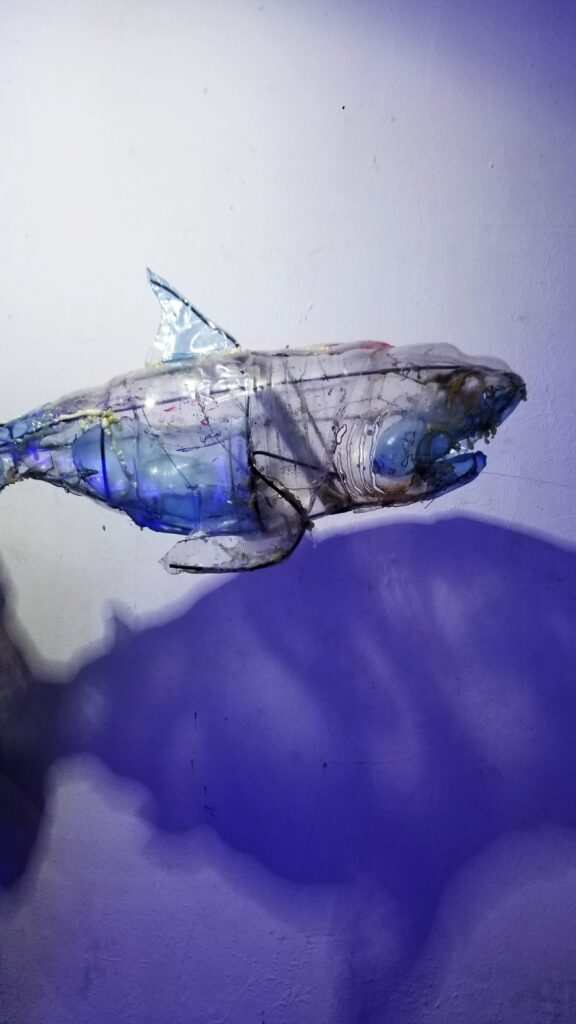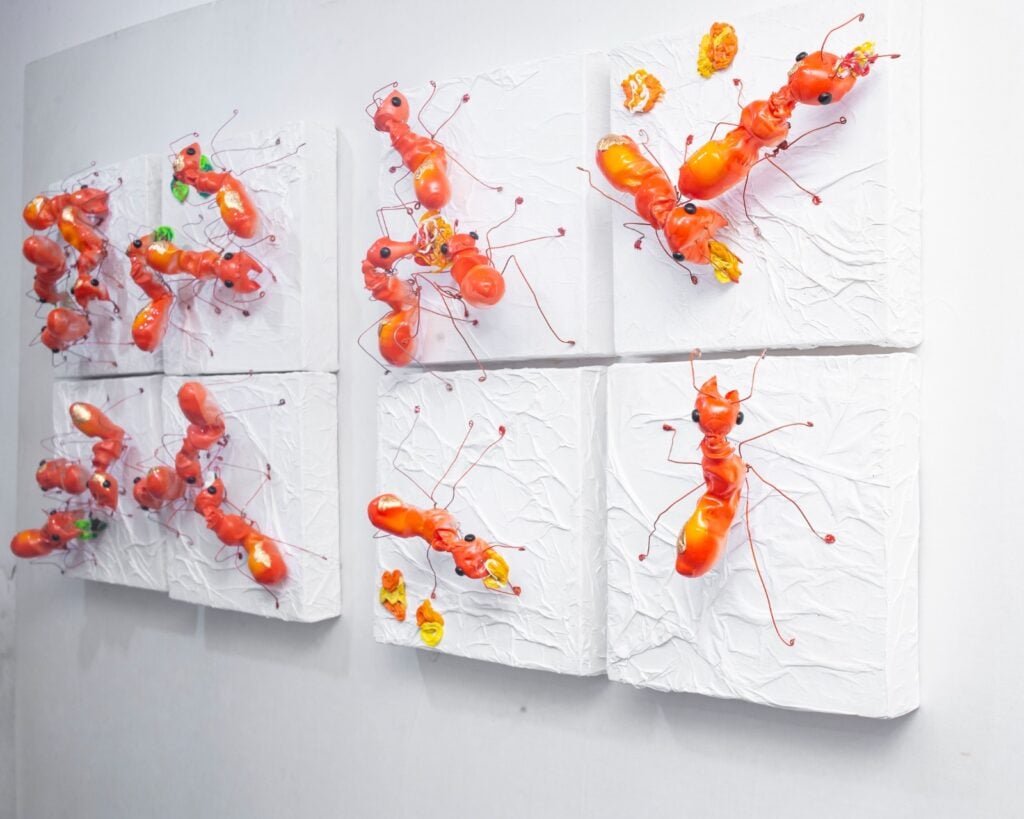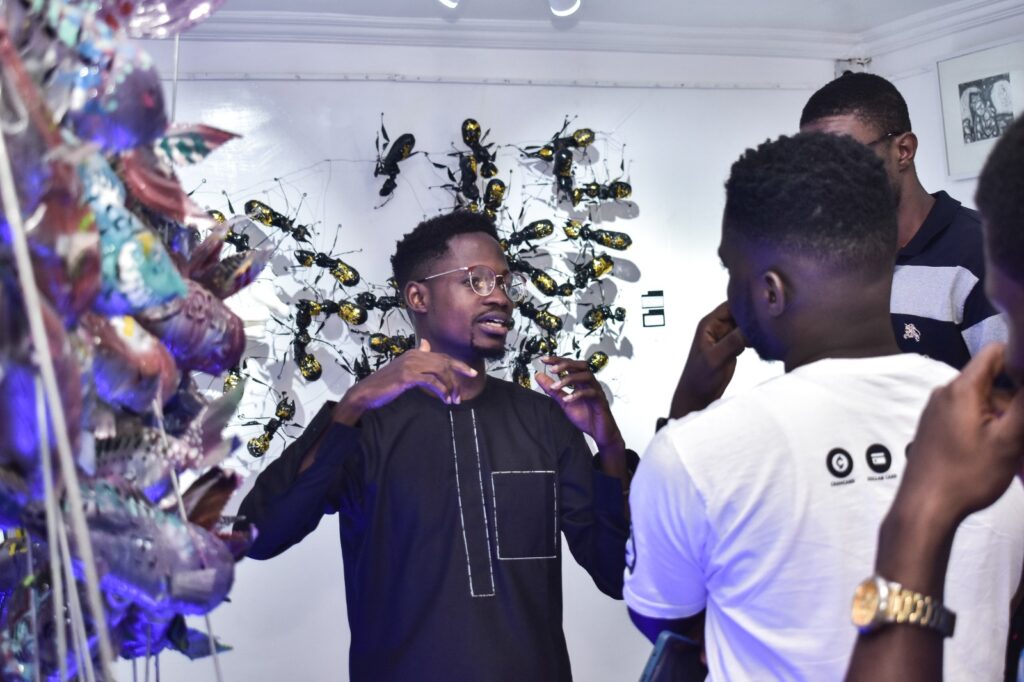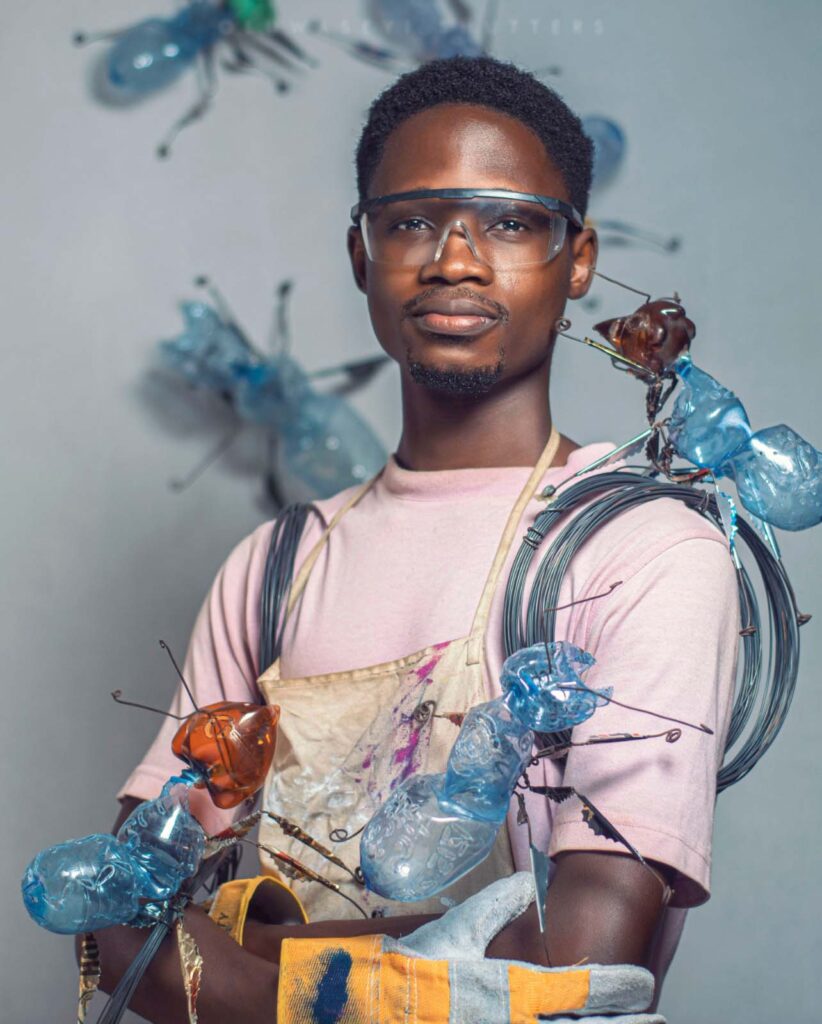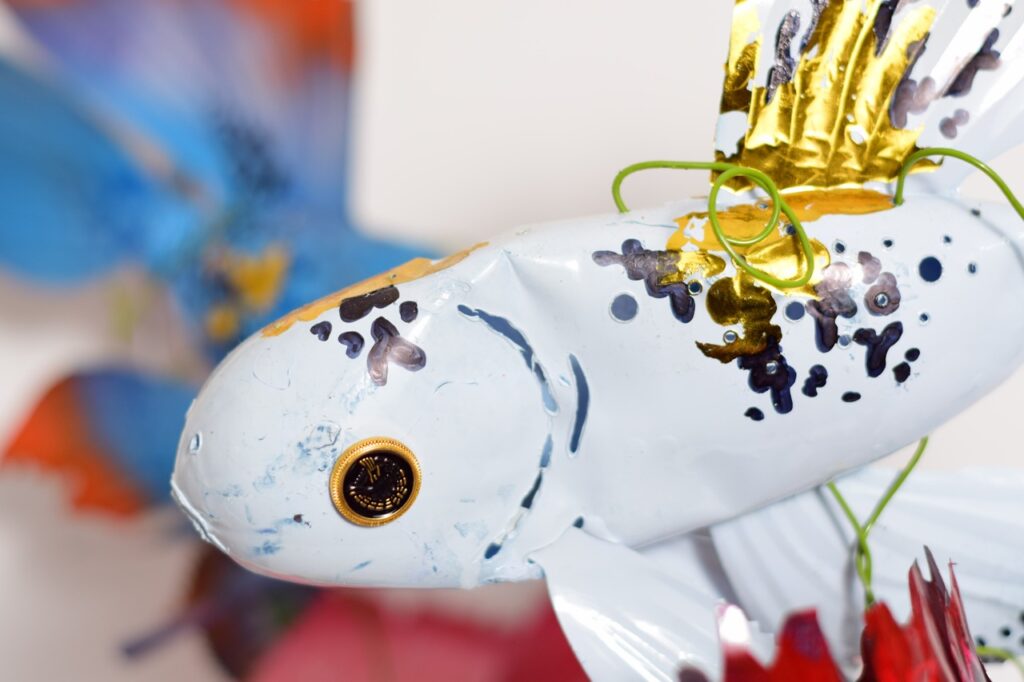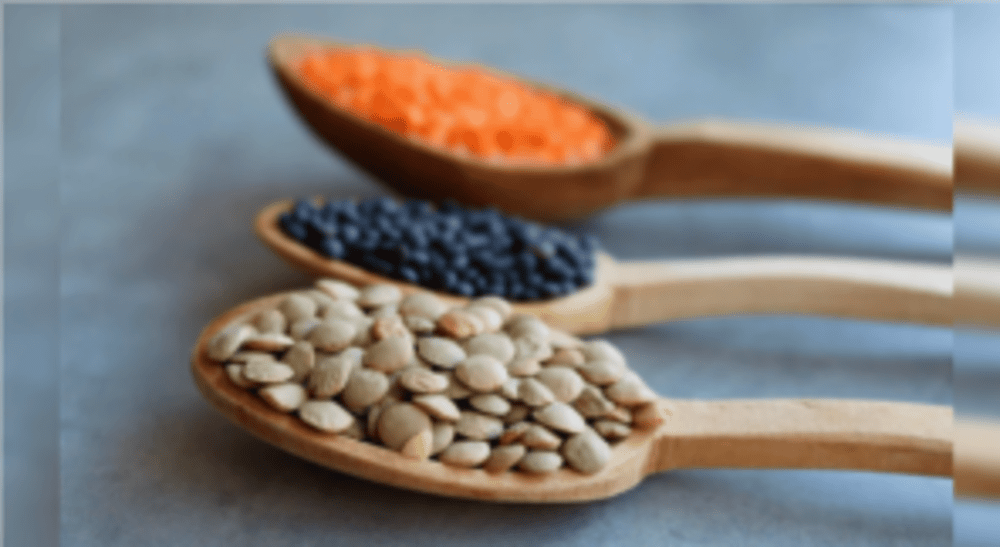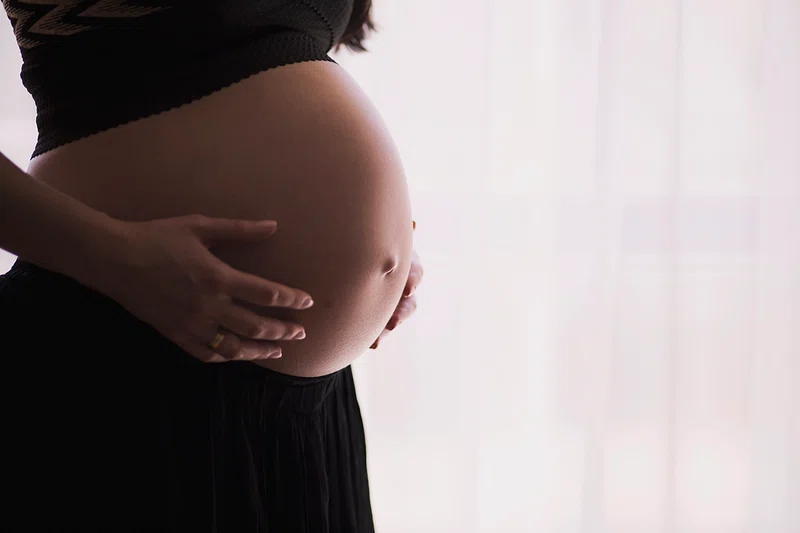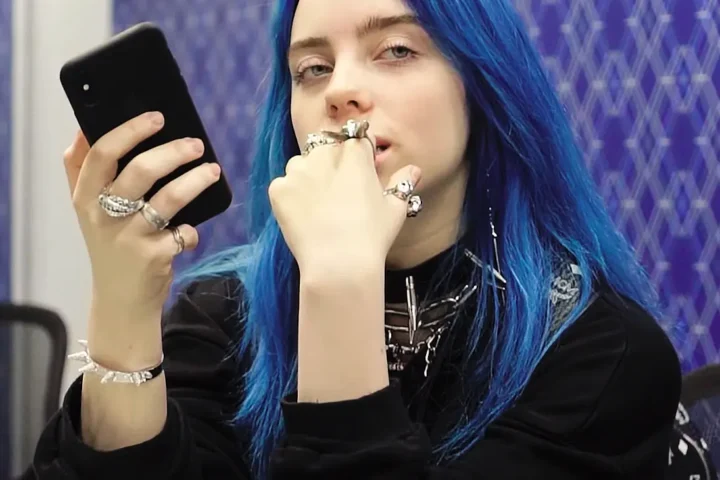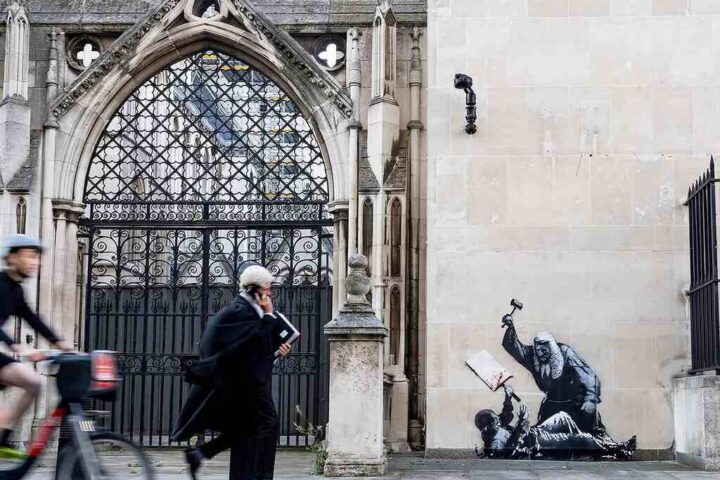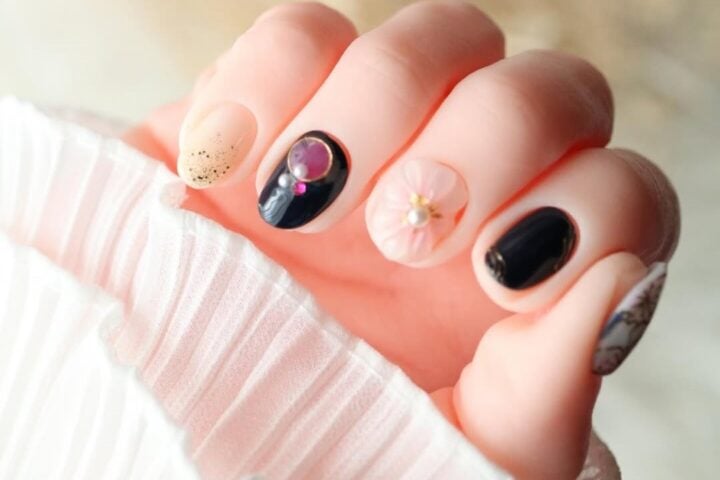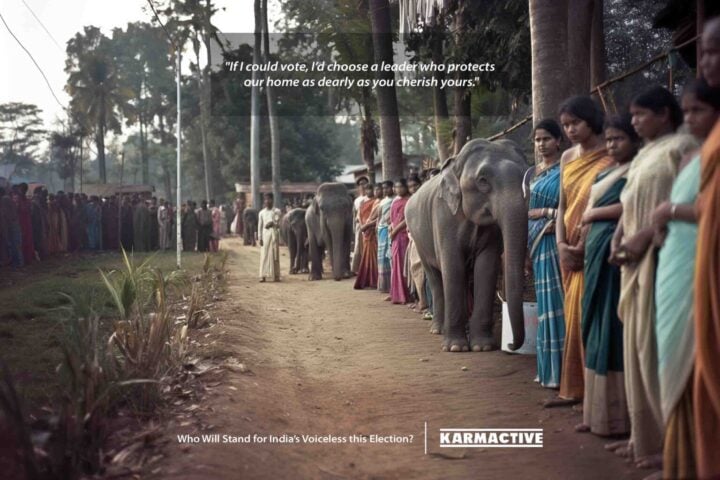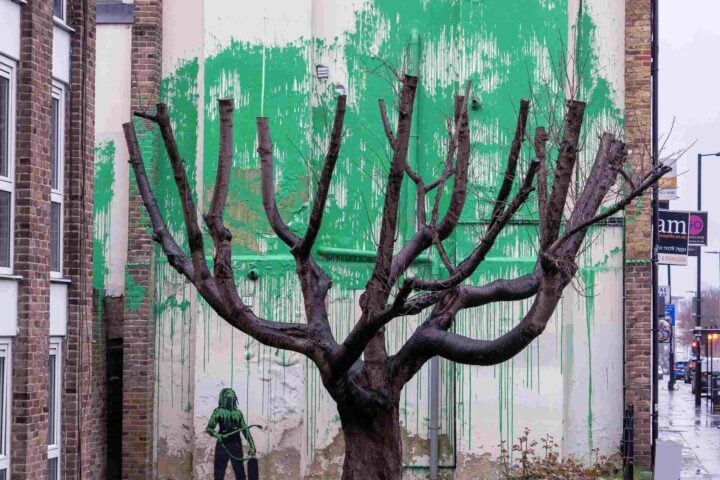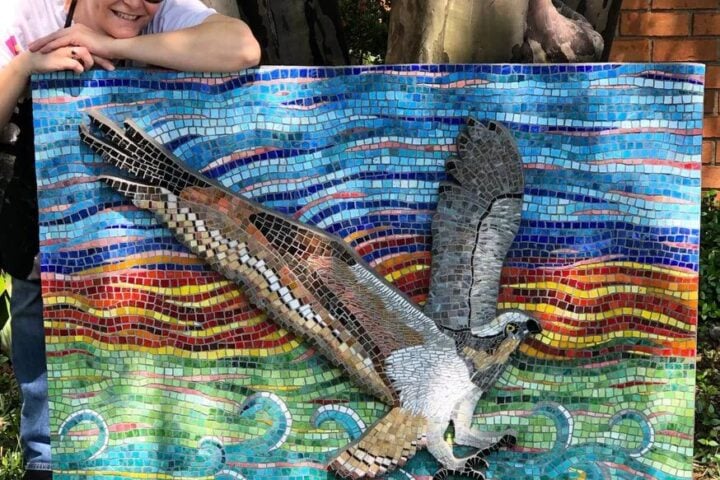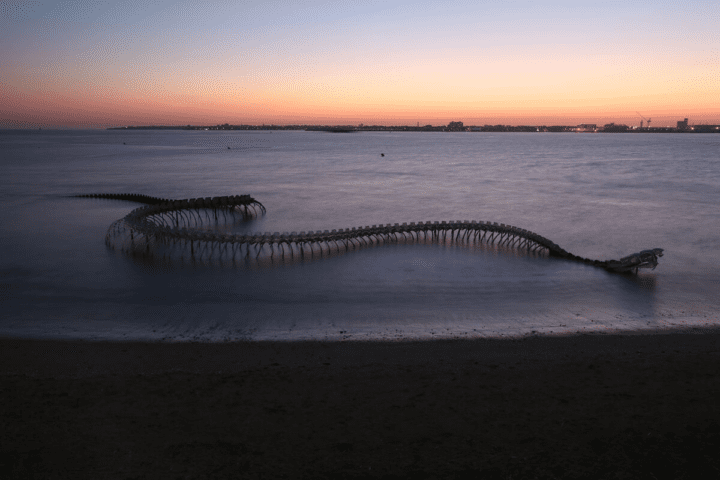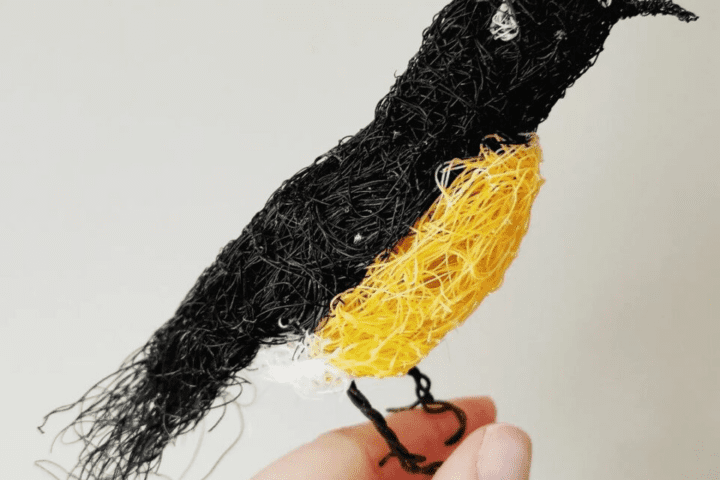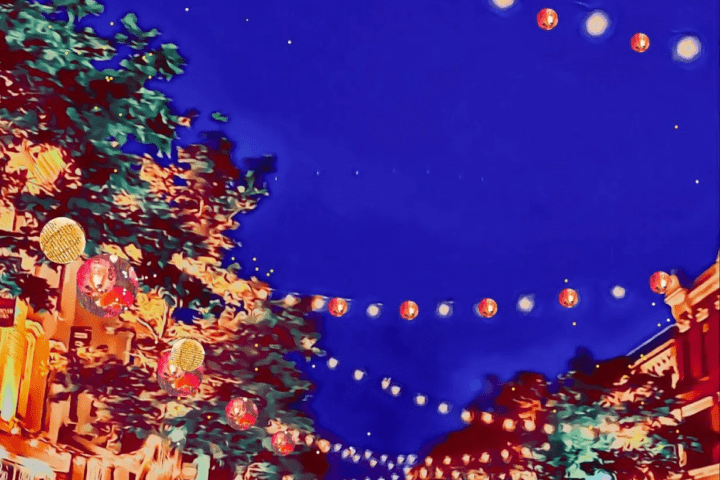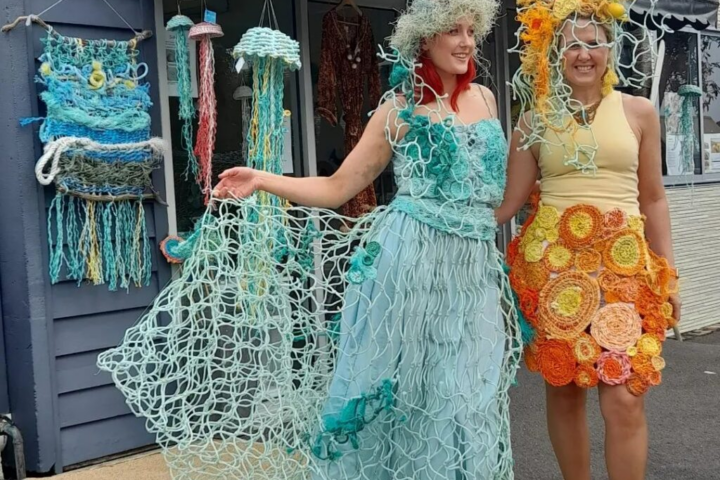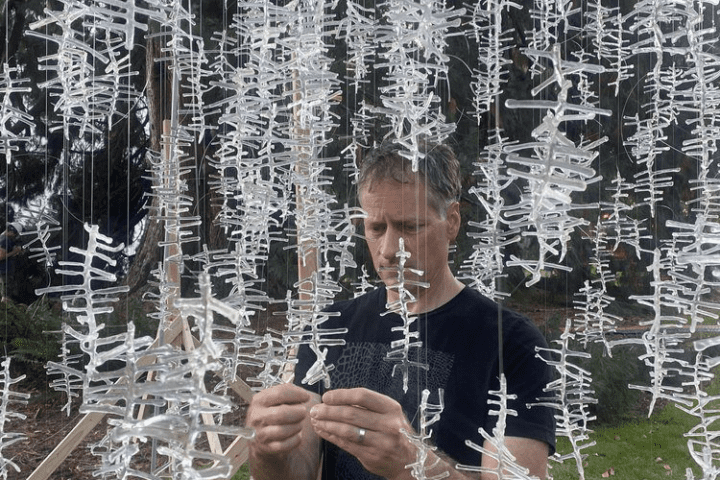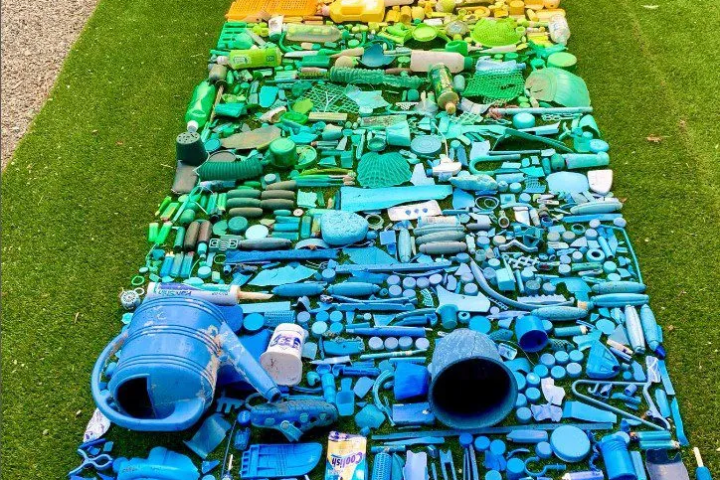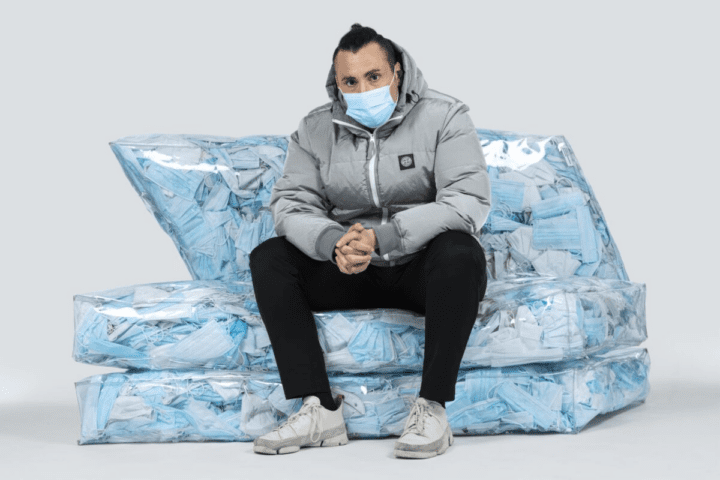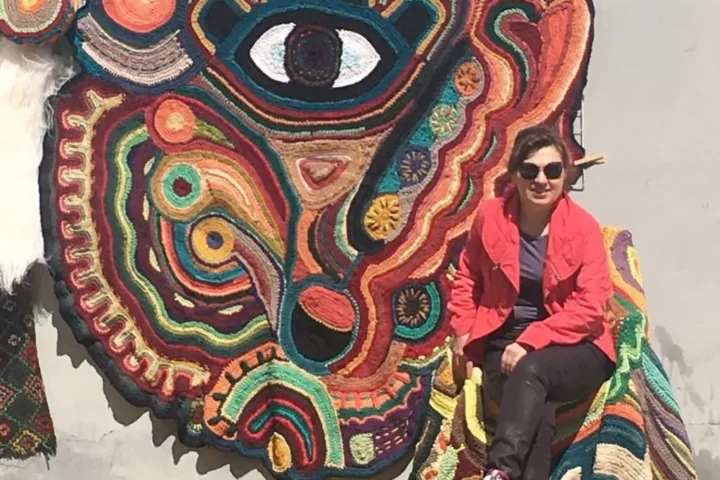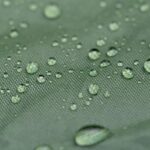Gbenga Adeku, a prominent upcycle artist from south western Nigeria creates awareness about plastic pollution and its effects on earth through his art. Adeku shared his artistic journey and environmental advocacy in a recent interview with Karmactive. His introduction to art began under the influence of his father, an artist and printmaker, and was further nurtured by the artistic community around him. Adeku’s work, largely focused on PET bottles and beverage cans, aims to educate and raise awareness about plastic pollution and its impact on the environment. He expressed to Karmactive, “So, I had all these different solid materials I was experimenting with but the one that struck the most and that became much more comfortable was the PET bottles. So, the goal of what I do with my art is to bring the awareness to what they do.”





Adeku’s creations are a response to the environmental challenges he observes in his community, including PET bottles clogging water bodies and contributing to floods. His art addresses the broader issues of plastic waste, particularly its effects on marine and terrestrial life. Adeku recounted a pivotal moment during a bridge walk, where he saw the contrast between plastic waste in the water and a nearby NGO protest against pollution. This led him to question the paradox of plastic use: “The water bottle we drink water serves a purpose of satisfying your thirst probably for 7 hours, but the plastic bottle we use lasts for a lifespan of billion years.”





The artist highlighted the lack of education on climate change in Nigeria as a root cause of plastic pollution. He is determined to spread environmental messages in an appealing manner to the general public. Collaborating with NGOs, Adeku is part of the effort to educate and incentivize communities for collecting and recycling plastics. However, he acknowledged the challenges in his work, including the limitations of certain plastics and the need for more collaborative and supportive structures in the field.
Similar Posts
Intriguingly, Adeku draws inspiration from ants, admiring their cooperative nature and environmental contributions. He explained to Karmactive, “I think the way ants work together, their resilience, their hard work, they are not selfish in nature. That character of ant fit exactly what I am trying to say, everybody putting their little efforts to a safer future.” This inspiration translates into his art, where he plans and designs meticulously, sometimes spontaneously, in his studio.



As Gbenga Adeku points out, the upcycling of PET bottles has had a significant influence on environmental movement and art. “So, I had all these different solid materials I was experimenting with but the one that struck the most and that became much more comfortable was the PET bottles,” said Adeku. This strategy demonstrates his dedication to reducing the negative consequences of plastic’s durability.
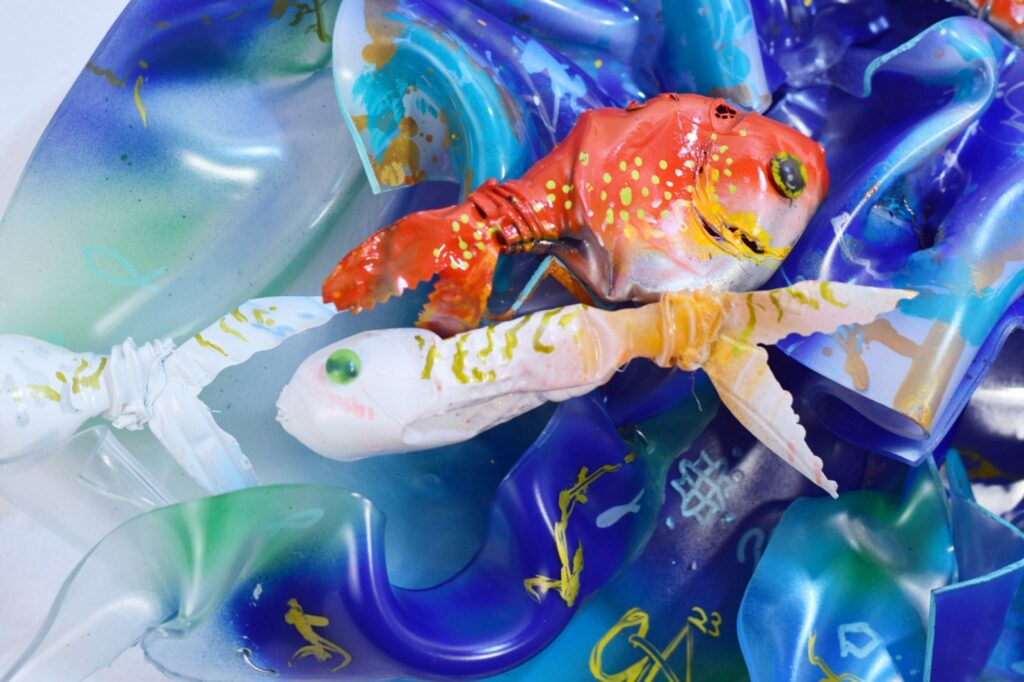
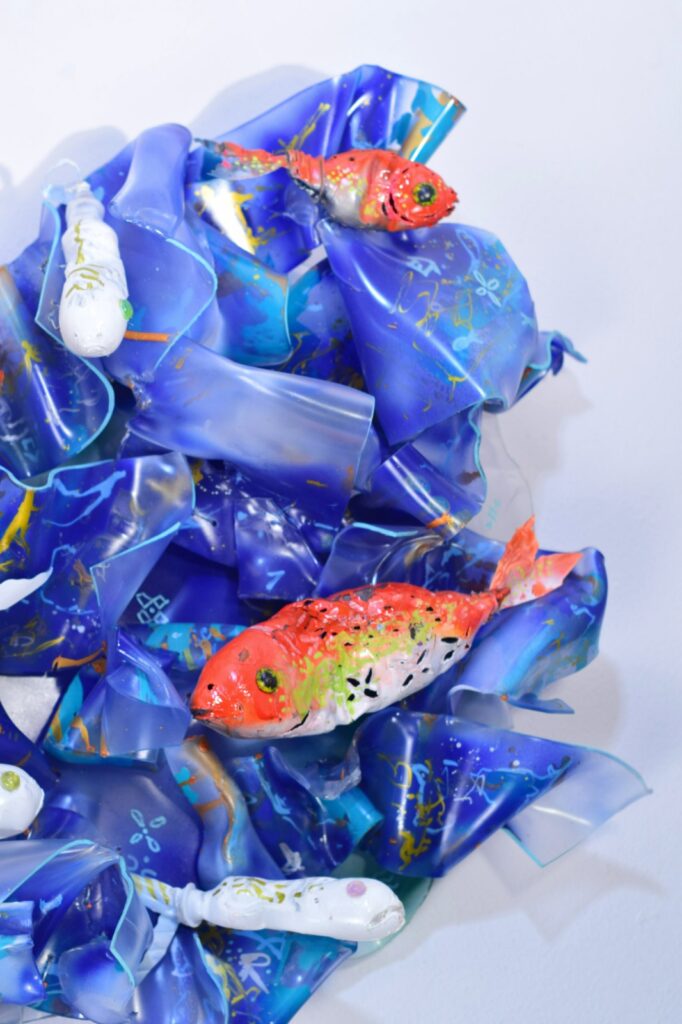
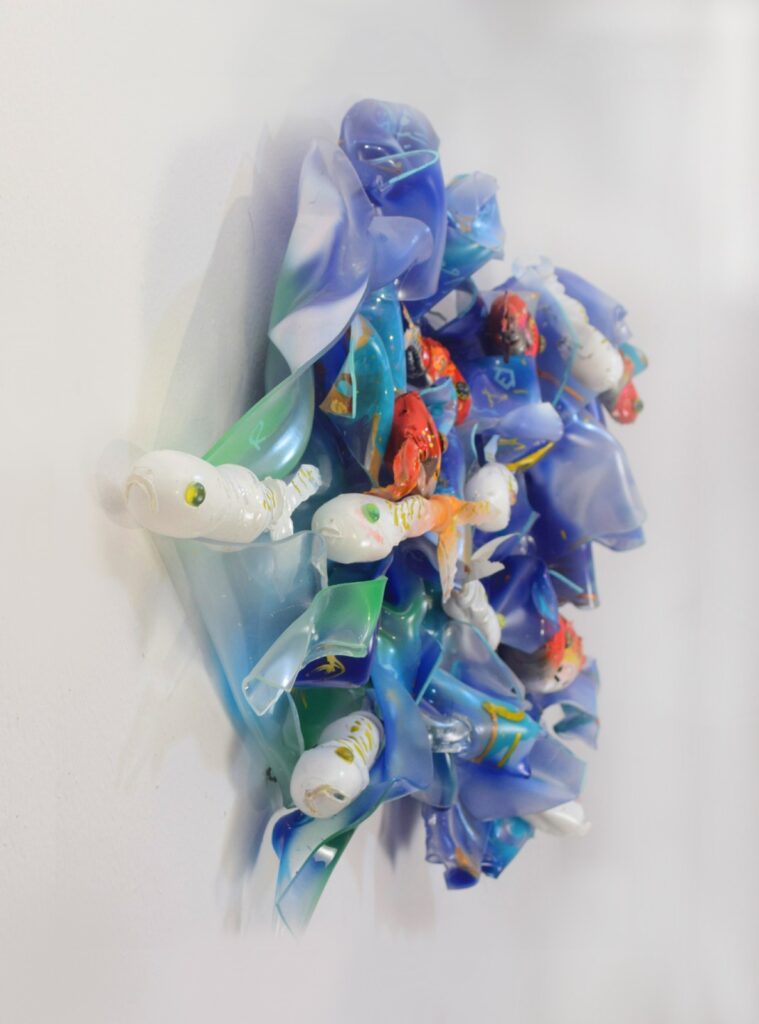
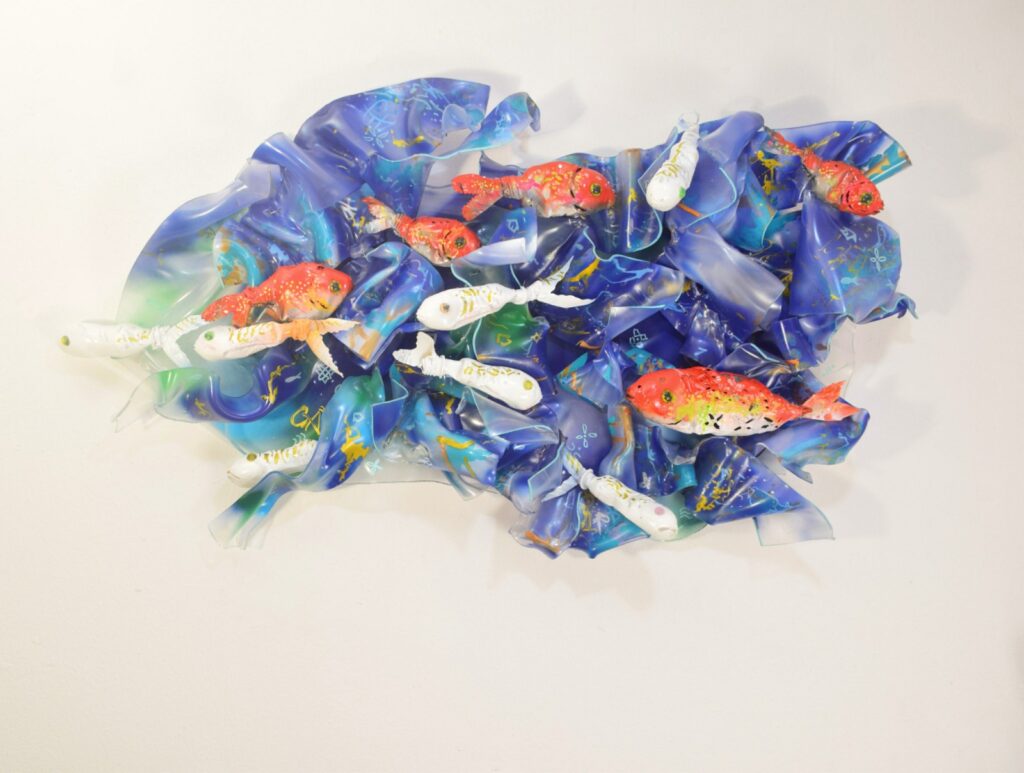
Adeku’s findings regarding Nigeria’s poor recycling infrastructure and dearth of knowledge about climate change also provide important context for understanding the difficulties the nation faces in disposing of its plastic garbage. “The biggest worry we have around here, is first, lack of education around climate change, around climate actions, around climate pollution,” Adeku told Karmactive. Adeku offers practical answers to these problems with his proposals, which include encouraging businesses to use more recovered plastics and providing incentives for recycling. Furthermore, Adeku’s particular struggles in his artistic and environmental advocacy endeavors—especially with regard to the limitations of some plastics—were not described in detail. One important component of Adeku’s plan to support a new generation of upcyclers is left out when it comes to his plans for educational programs and training efforts.





Adeku’s work has found its place in various settings, from individual collectors to institutions. He focuses on creating large art pieces that immerse viewers in an environmental narrative. The artist also delves into the concept of ‘pro-environmental luxury art,’ defining luxury as something that fulfills an unrecognized need. In conversation with Karmactive, he asserted, “The idea of luxury is creating something that meets a need that you probably don’t even know you have.”




To foster a new generation of upcycle artists, Adeku plans to establish a workshop, offering training and expanding the reach of his environmental message. He envisions a future filled with travel exhibitions and educational endeavors, all while continuing to develop his artistry and advocacy. His commitment to environmental awareness through art is a testament to the power of creativity in addressing global challenges.




Gbenga Adeku, is currently participating in an exhibition in Fort Wayne, Indiana, USA. His work, which mostly focuses on the creative recycling of PET bottles, is on show for two months at the First Press Gallery. The exhibition is titled “Ocean of Influences” and features works by Adeku and well-known Japanese-American plastic sculptor Sayaka Ganz. This joint show offers a distinctive and appealing viewpoint on environmental challenges, particularly the effects of plastic pollution. Adeku’s participation in this international show marks not only a key turning point in his career, but also his message of environmental consciousness and the transformational significance of environmental awareness and the transformative role of art in addressing global ecological challenges is being amplified.
